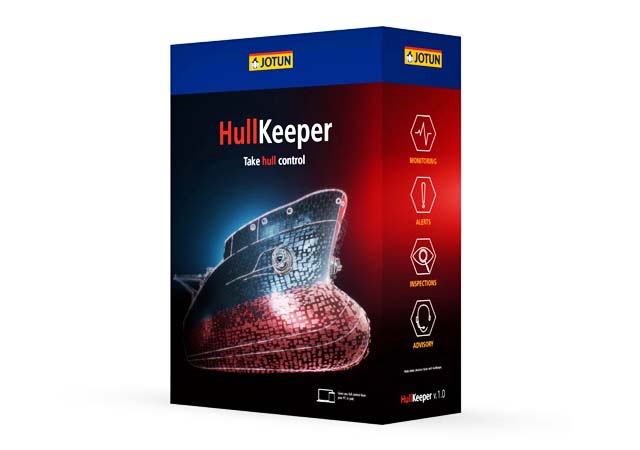Norwegian coatings supplier Jotun says that its proactive hull optimisation programme, known as HullKeeper, enables ship operators to take control of their vessels’ hulls and gives tools to improve efficiency, lower costs and help with decarbonisation, as well as helping to prevent transferring of invasive species.
HullKeeper has been tested and employed by a number of ship operators and is now ready for a global rollout, which comes when an increasing number of regulations such as IMOs EEXI and CII is putting added pressure on ship operators to not only understand and comply with the forthcoming regulations and industry decarbonisation targets, but maintain profitability.
Andreas Krapp, Jotun’s Global Digital & Data Director, said: “The four-part HullKeeper programme combines Jotun’s trusted analytical and technical services – an expertise built over years of advanced data analysis and in-field experience, with advanced digital capability and ROV inspections. With HullKeeper, we offer customers unique hull performance support services based on solid and trusted data and advice regardless of the chosen coating. Customers can subscribe to the whole package or select individual modules depending on their needs. The HullKeeper programme utilises Jotun’s in-house developed fouling risk algorithm and combines data from different sources to make fouling control and efficiency predictable. Insight into developing issues as they begin to occur allows for planned corrective actions and as more information and data is accumulated, best practices can be adopted across the whole fleet.”
Aside from aiding in ensuring compliance with regulations and decarbonisation targets, a further benefit for operators in having a clean hull is that it has been estimated that around 9% of fuel used annually by ships is needed to overcome the effects of biofouling so a clean hull will give both an immediate and long-term saving on fuel – even for ships using alternative fuels and where emission reduction is not the key focus.
Shipowners which have been trialing the programme since it was first announced in 2021 have reported gains. One owner said: “We think the collaboration agreement is a good thing. We here on land don’t know what’s going on and neither does the crew, they don’t see what’s going on beneath the surface of the water so it’s good to get support and advice from Jotun – it’s another piece of the puzzle to improve efficiencies.”
Another reported: “It is beneficial to gather this information without the need for diver inspections and we are anticipating savings in fuel costs as a result of the better predictability of the hull condition”.
Over the last three years, a number of vessels have suffered enforced idling for a variety of reasons. This is a situation where HullKeeper has proven to be very useful. A large fleet operator has said it uses it frequently to determine the specific fouling factor for each vessel based on the fouling conditions.
Krapp concluded: “Jotun is committed to providing our customers with new products and services that will enable them to overcome the operational and regulatory challenges facing them. HullKeeper allows our customers to keep on top of the biofouling challenge and make informed and timely decisions to ensure optimum performance. Our experience acquired over many years has proven that proactively maintaining the hull in as clean a condition as possible avoids increased fuel costs and reduces emissions. Operators using HullKeeper will gain a competitive edge by identifying potential problems long before they significantly impact ship performance – enabling them to also protect their profitability”.



